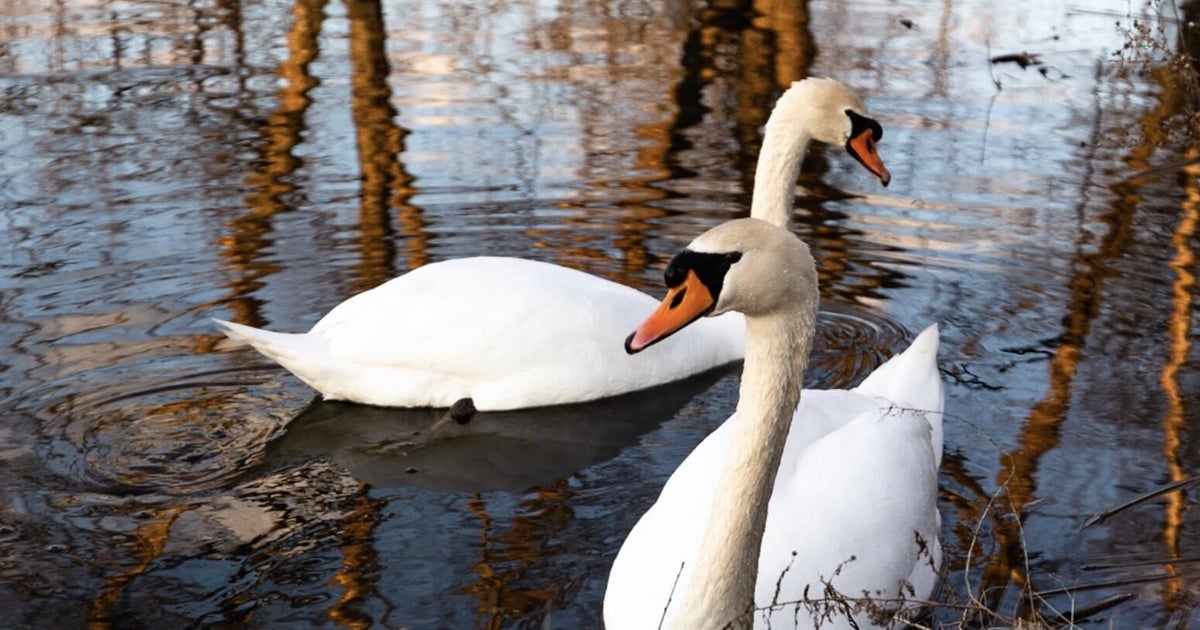Rare Sight: Blue Whale Spotted Off New England Coast
PORTLAND, Maine (AP) -- Whale watchers got a treat over the weekend: They saw the world's largest mammal make its first appearance in the waters off New England in several years.
Naturalists estimate the endangered blue whale to be a true behemoth at about 80 feet long.
The blue whale spotted 15 miles south of Boothbay Harbor on Sunday was nearly as long as a pair of 100-foot whale-watching boats that came in for a look.
People aboard both boats cheered.
"I was thinking, `Wow, this is a chance of a lifetime.' I didn't want to leave because I may never see it again," said Dominique Leclerc, a marine biologist on the Pink Lady II.
Watch video of the encounter
Blue whales are found in oceans around the world, but it's unusual to see them off the coast of New England because they prefer the deep ocean farther offshore, said Sean Todd, director of Allied Whale and chairman of marine sciences at the College of the Atlantic in Bar Harbor.
Todd theorized that this whale was off the beaten path following krill, the tiny shrimp-like crustaceans that comprise its diet. The last sighting in New England waters was three to four years ago, he said.
Because they swim so far offshore, their numbers and activities are not fully understood. They're listed as endangered under the federal Endangered Species Act, and a previous count of 440 blue whales from the Gulf of St. Lawrence is considered to be a minimum for the northwest Atlantic, Todd said.
Mechele Vanderlaan, naturalist aboard the other whale-watching boat, the Harbor Princess, said it was only the second time in 21 years that she's seen a blue whale.
"I can't get the smile off my face," she said. This apparently was one mellow whale. It didn't respond to cheers from people on the boats or the rumbling diesel engines; instead it appeared to be logging, or sleeping.
The massive mammal stayed about 10 feet below the surface, coming up every five to eight minutes to send a shower of water skyward from its blow hole and take a breath before going underwater.
Whales don't sleep the way humans do. While scientists don't fully understand sleep patterns, it's believed that one hemisphere of the whale's brain sleeps while the other remains alert, like other marine mammals, Todd said. Thus, the whale was aware of the boats but was apparently unconcerned by their presence.
"The lack of reaction of the whale to the boat is a sign that the skipper is doing the right things and they're not harassing the animals," Todd said.
Because of their size, reaching up to 100 feet long, blue whales were hunted heavily in the 19th and 20th centuries. As the species recovers, it's still rare to see large ones, Todd said.
Passengers got excited when the naturalists explained that this wasn't one of the usual whales seen off the coast of Maine, like fin, humpback or sei whales.
The boats -- the Pink Lady II operated by Cap'n Fish's Whale Watch and the Harbor Princess operated by Boothbay Whale Watch -- came alongside and cut their engines, floating alongside the blue whale.
"At first, they thought this is a whale and this is a whale watch. Then I explained to them that you don't see these whales,"
Leclerc said. "They clapped. They cheered. They screamed."
(TM and © Copyright 2011 CBS Radio Inc. and its relevant subsidiaries. CBS RADIO and EYE Logo TM and Copyright 2011 CBS Broadcasting Inc. Used under license. All Rights Reserved. This material may not be published, broadcast, rewritten, or redistributed. The Associated Press contributed to this report.)







